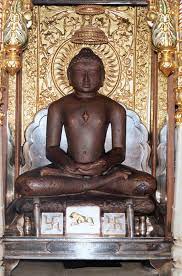Jainism is an ancient religion and philosophical tradition that originated in India over 2,500 years ago. It is one of the oldest religions in the world and is based on the teachings of a series of 24 spiritual leaders known as Tirthankaras. Jainism emphasizes non-violence and respect for all living beings, and its followers believe in the importance of living a simple, ascetic life.

Table of Contents
Key Beliefs and Practices of Jainism:
- Ahimsa (Non-Violence): Jainism places a strong emphasis on non-violence and respect for all forms of life. Jains are vegetarian and avoid activities that cause harm to any living beings.
- Karma: Jains believe in the concept of karma, which states that every action has a corresponding result. Good actions lead to good karma and a better life, while bad actions lead to bad karma and a lower life.
- Multiple Souls: Jains believe that every living being has an eternal soul, which can be reincarnated into another body after death.
- Asceticism: Jains believe that the path to spiritual enlightenment involves renouncing material possessions and leading a simple, ascetic life.
- Tirthankaras: Jains believe in the teachings of 24 spiritual leaders, known as Tirthankaras, who achieved enlightenment and taught the path to liberation. The last Tirthankara, Mahavira, is considered the founder of Jainism.
Jain Practices and Traditions:
- Meditation: Jains practice meditation as a way to gain greater self-awareness and control over their thoughts and actions.
- Fasting: Jains practice fasting as a means of purifying the body and mind. Some Jains fast for extended periods, while others fast periodically throughout the year.
- Pilgrimage: Jains make pilgrimage to holy sites associated with the Tirthankaras, as a way of honoring their teachings and gaining spiritual merit.
- Worship: Jains worship by offering prayers and making offerings to Tirthankaras and other Jain spiritual leaders.
Jainism has a small but devoted following in India, where it is considered one of the country’s six major religions. Jain communities can also be found around the world, especially in countries with large Indian diaspora populations, such as the United Kingdom, the United States, and Canada. Despite its small size, Jainism has had a significant impact on Indian culture and history, and continues to inspire its followers to live lives of non-violence, compassion, and spiritual growth.
Important Links